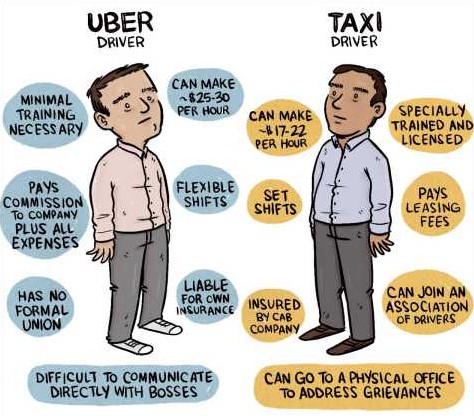 Unless you’ve been fasting from social media to do some sort of life re-centering with your fellow yogis, there’s recently been a lot of hullabaloo surrounding the ridesharing company, Uber. Articles like this one, this one, and even this one, all poised themselves to purport that the company’s ethics are all out of whack.
Unless you’ve been fasting from social media to do some sort of life re-centering with your fellow yogis, there’s recently been a lot of hullabaloo surrounding the ridesharing company, Uber. Articles like this one, this one, and even this one, all poised themselves to purport that the company’s ethics are all out of whack.
TL;DR: Uber’s C-Suite is comprised of a bunch of fratty misogynists, their favorite pastime is hoarding your data and stalking you, and they hire criminals to deliberately kidnap you.
Oh and as of August, the service became available in 45 countires, more than 200 cities worldwide, has raised over $49 million dollars in VC funding, and is valued at over $40 billion dollars. They’ve also managed to initiate the biggest monetary outreach the nonprofit No Kid Hungry has ever had, simply by offering a “donate” option in their app. But that’s not nearly as important as the fear-mongering coming from the big brother blogs.
All this to say, ridesharing companies like Uber, Lyft and Sidecar are not only disrupting the way we travel, but the way transportation companies do business. And it’s awesome.
Ed Kargbo, President of the Greater Austin Transportation Company (Yellow Cab Austin) and my good buddy from the Greater Austin Chamber of Commerce, recently had words on My Fox Austin in his segment entitled “taxis fights back“. In the video, Ed, cool as a cucumber, essentially goes on to explain that Uber and Lyft are mere pawns in his game. Sure, their use of technology has forced them to work a little more efficiently, but it isn’t innovative.
In fact, he says, cabs cannot and will not be out-innovated. Here’s why:
- Your trusty yellow steeds were the first to the app game. And I do mean “your” – Austin was the first city to equip cabs with both application capabilities and GPS technology. Today, the HailACab app claims more than 30% of the company’s bookings.
- They’ve already got the infrastructure. Since it’s a city-governed company that has been around for what seems like eons – implementing the technology was a cinch. So because of this system, the supply, tech, and drivers are all taken care of; all parties are satisfied.
- And lastly – no surcharges. Sure, surcharges are appealing for rideshare drivers during high volume times, but what about all the other times? Fluctuating rates are hard to rely on. With Yellow Cab, drivers never lose money.

Based on what I know from companies like Uber, and what I know from companies like Yellow Cab, both could use a lot of work in their public relations and customer service departments. Now, I’m no expert, but I’m pretty sure allowing a surcharge during a very traumatic hostage situation – where people are fleeing for their lives – isn’t the best way to convey you’re a company who cares (and an algorithm is not an excuse). On the flip side, cab drivers have to battle years of being notoriously late and non-communicative – so Ed and his fleet have some work to do on upping their level of reliability.
But, with their use of technology and ability to rapidly adapt with the needs of commuters, both companies (and their respective areas of competition) are transforming the way we get from A to B, making this an exciting time for the transportation industry at-large!
Just maybe make sure you have a rockstar PR team…